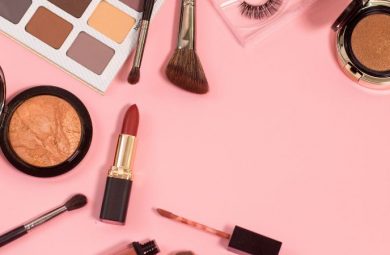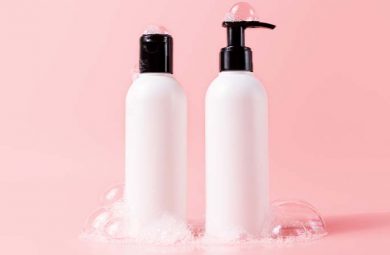Knowing how to choose a shampoo is the foundation of healthy hair and is key to simple styling. Don’t let endless hair care products make you pull your hair out! Simply identify your hair type, and look for the scientifically formulated ingredients that correspond to those needs.
Most shampoos, along with other types of hair products, identify on the label what hair type the product is designed for. Not all shampoos can solve all hair issues. Choose your most important hair need and pick a formula that addresses that for best results.
Here are some things to keep in mind when looking for the right shampoo and accompanying hair care products:
1. Fine or Thinning Hair
Fine hair has little bounce and lacks volume. The key to managing fine hair is to select a brand of shampoo that is gentle and is formulated to provide structure, without weighing hair down. A good shampoo will help your fine hair look and feel fuller.
Once you find a gentle, volumizing shampoo, be sure not to overdo the conditioner. Fine hair requires less product. Apply a small amount to only the ends of your hair.
Keywords to look for: gentle, volumizing, lightweight.
2. Dry, Damaged Hair
Dry and damaged hair is typically frizzy, with split ends, and often has a straw-like texture. Follow this advice if you are wondering how to choose a shampoo for curly hair, too. Curly hair tends to fit in the damaged and dry category, and is often difficult to manage.
For these types of hair, look for extra moisturizing shampoos. Dry, damaged and curly hair can be vulnerable, so it is important to find a shampoo that adds an extra layer of protection.
The goal of a moisturizing shampoo is to tame frizz and manage volume. A good, thick, moisturizing conditioner helps too.
Keywords to look for: moisturizing, restoring, smoothing, hydrating.
3. Oily Hair
If your hair feels greasy to the touch and gets weighed down, you probably have oily hair. Look for shampoos that have silk powder and surfactants to gently remove excess oil.
Avoid shampoos designed for oily hair if you have a sensitive scalp. Shampoo geared towards oily hair can often strip the scalp of moisture.
As with fine hair, use conditioner sparingly, or not at all. While stylists recommend daily washing, choose dry shampoo for the days you do not wash your hair with traditional shampoo.
Key words to look for: oil-fighting, clarifying.
Related Search Topics (Ads)
Related Products
4. Color-Treated Hair
Almost everyone has color-treated hair these days, and chemists have formulated shampoos to keep that color long-lasting.
If you have color-treated hair, your goal in a shampoo should be to prevent fading and minimize damage to vulnerable strands. Strong shampoos can strip the color from your strands.
Avoid washing your hair more than twice a week, and look for color-safe and sulfate-free shampoos. If you have an oily scalp, a dry shampoo is a great option for non-shampoo days.
Keywords to look for: anti-fade, sulfate-free, color-safe.
5. Thick, Curly Hair
While we did mention curly hair above, it deserves its own recognition and shampoo choices too, as it is well-known that curly hair can be difficult to manage.
People with curly, thick hair often say that they struggle with frizz, but really, their hair is just trying to tell them what it needs: moisture. Frizz happens because the strands of hair are reaching out for moisture in the hair.
So, look for shampoo that specifically caters to curly hair types. These blends typically are more efficient at locking in moisture, while providing that body and sculpt people want!
Other Shampoo Considerations
Now that you know how to choose a shampoo based on your hair type and scalp needs, you need to consider the ingredients too. While finding a blend that suits your hair type is of utmost importance, there are other aspects to keep in mind:
- Is the shampoo company cruelty-free?
- Does the shampoo brand use clean and vegan products?
- Are there chemicals that will irritate your scalp?
- Are there chemicals that will dry out your hair, doing the opposite of what it might claim?
Doing this type of research and finding the answers to these questions can help you formulate your final decision. It will also help you make sure that you are getting the bang for your buck!
Time to Shop for Shampoo!
Finding a great shampoo is simple if you can identify your most pressing hair issue. Modern brands formulate shampoos to target very specific hair needs based on hair type and condition. Knowing which formula to look for based on your lifestyle and hair needs will make every day a great hair day.







